Migrant crisis: Have EU promises been kept?
- Published
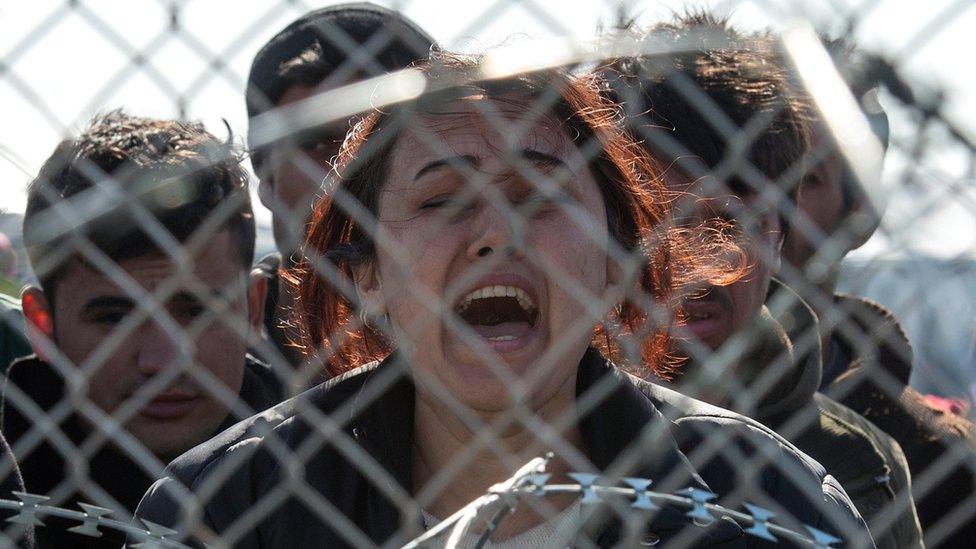
Aid groups have warned of a humanitarian crisis as thousands of people are stranded at the Greece-Macedonia border
Thousands of migrants and refugees continue to arrive at Europe's borders, but many are not going anywhere.
New barriers are in place - and violence flared up this week at the Greece-Macedonia border. The EU is split over how to tackle the crisis, before even more migrants arrive as the weather improves.
Syrians form the largest group by nationality - among the millions who have fled the country's civil war.
Despite some progress, the European Commission said in a report in February, external that full implementation of the promised measures "has been lacking". So what promises have been kept or broken?

Borders and registration: 'domino effect'
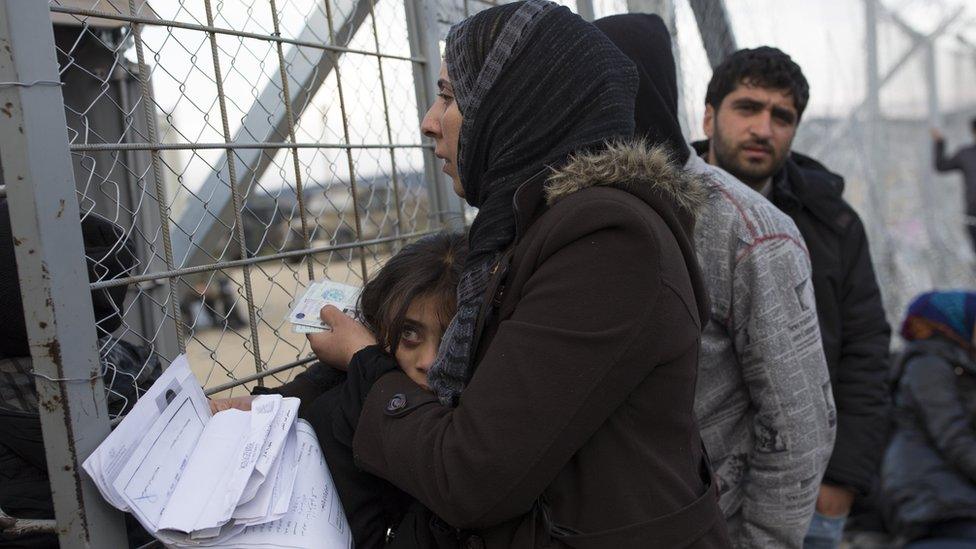
A major point of dispute is the EU's Dublin Regulation, external. It states that the country where asylum seekers first arrive has a duty to process their claim.
Greece and Italy - on the frontline of the crisis in the Mediterranean - have been heavily criticised for allowing people to cross their territory unregistered. Most migrants want to reach Germany or other countries in northern Europe.
Greece says it is overwhelmed by the influx, and demands that the burden be shared more equally among its EU partners.
The European Commission - the EU executive - is revising the regulation. But it says migrants must be registered on arrival in the EU.
The identification process has improved, Commission figures suggest. In Greece, the number whose fingerprints were included in a database rose from 8% in September to 78% in January. In Italy, the corresponding rise was from 36% to 87%.
But progress has been "slow", the Commission says, because of a delay in setting up "hotspot" reception centres at the EU's external borders. The registration process carried out there determines the next step: asylum, relocation or return.
Two of the new centres have been opened in Italy. In Greece, five were supposed to have been completed by the end of last year. The government says four are now operational, and it accused the EU of being slow to provide equipment and personnel.

Co-operation between Western Balkan countries on the migrants' route north remains "insufficient", the Commission says.
Unilateral decisions, such as border closures or restrictions, have created a "domino effect".
"The result is a de facto policy of refusal of entry by nationality or by intended country of registration of a request for asylum," the Commission complains.
Hungary set off the European "dominoes" last year by fencing off its southern borders.
The crisis threatens the existence of the EU's cherished Schengen passport-free travel zone, covering most of Europe.
Human Rights Watch (HRW) said the Greece-Macedonia border closure and Austria's controversial decision to impose a daily cap on asylum applications showed the EU's "utter failure" to respond to the crisis., external
Macedonia - not yet an EU member - has been letting only a trickle of Syrian and Iraqi refugees through, keeping other migrants out.
Schengen: EU free movement deal explained

Relocation very slow
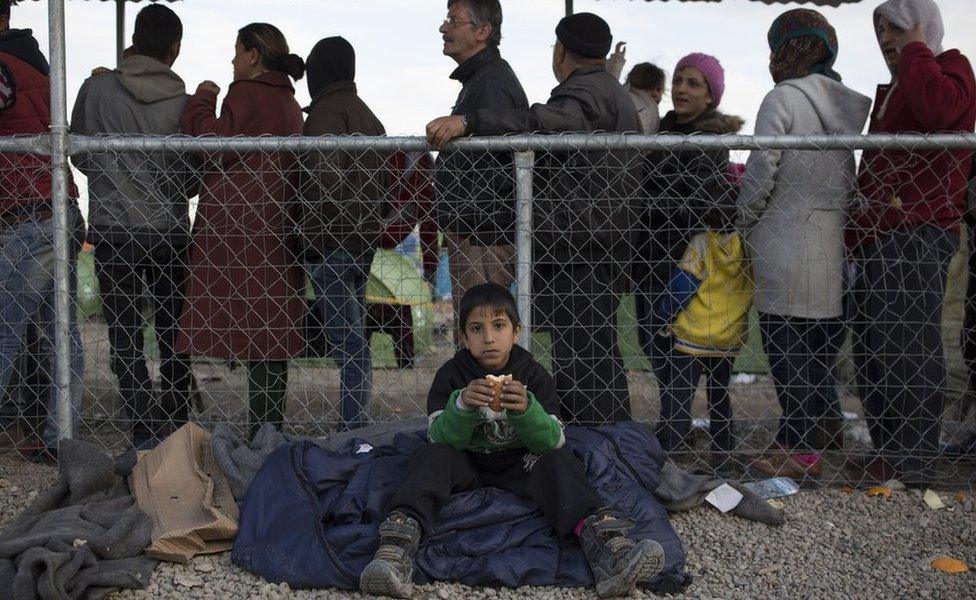
In October, EU countries approved a plan to relocate 160,000 asylum seekers across the bloc, despite strong opposition from central and eastern European nations.
The aim was to alleviate the pressure on Greece, Italy and Hungary. But in December Hungary and Slovakia filed a lawsuit against the quota plan, at the European Court of Justice.
Progress, again, has been "very slow", the European Commission says. Only 218 migrants have been relocated from Greece - out of a target of 66,400 there.
In Italy, 279 have been relocated to other EU countries - but the target there is 39,600.
The relocation plan affects refugees from , externalSyria, Iraq and Eritrea.
Only 12 member states have received relocated people, and five countries are yet to offer places.
HRW says the relocation plan has had a "poor start", external.
The Commission originally called for mandatory relocation of refugees across the EU, using a "key" based on country size and economic strength. But governments rejected that, saying it could only be a voluntary scheme.

Returns 'insufficient'
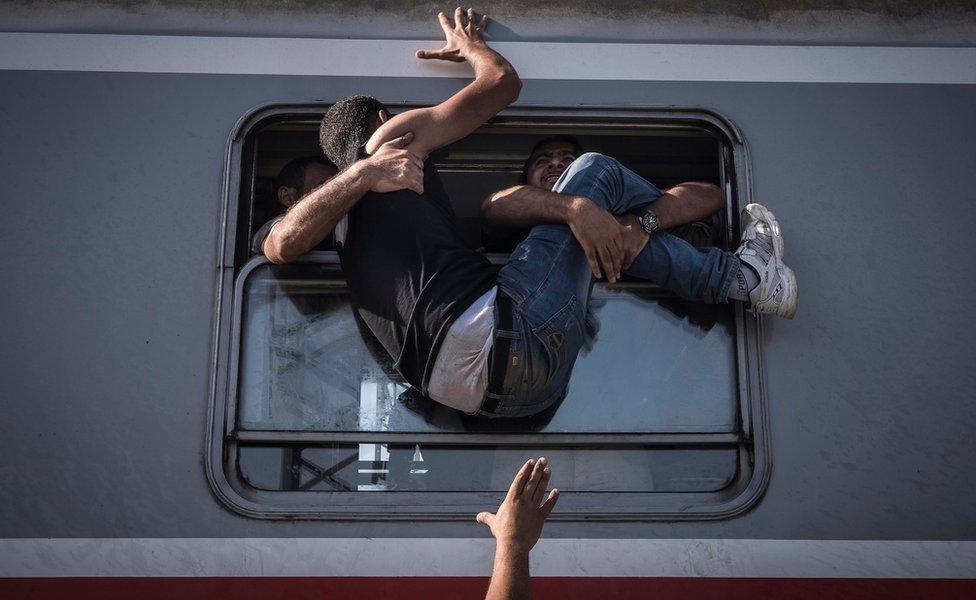
The EU return system has been "harmed" by the failure of member states to deport swiftly those who have no legal right to stay, the Commission says.
Last year 3,565 migrants were returned in operations co-ordinated by Frontex, the European border agency. The figure does not include migrants sent back without Frontex involvement.
In Greece, there were 16,131 forced returns and 3,460 assisted voluntary returns of economic migrants, according to the European Commission., external But the number "remains insufficient in the context of over 800,000 arrivals in 2015", it said.
Identification, again, is key to making the process work.
Another delaying factor is the absence of an EU-wide list of safe countries of origin, as proposed in September., external
The EU and Turkey launched a plan in November to accelerate the readmission of migrants refused permission to stay in the EU.
In 2014, less than 40% of the irregular migrants who were ordered to leave the EU actually departed, the Commission says., external

What is it all costing?
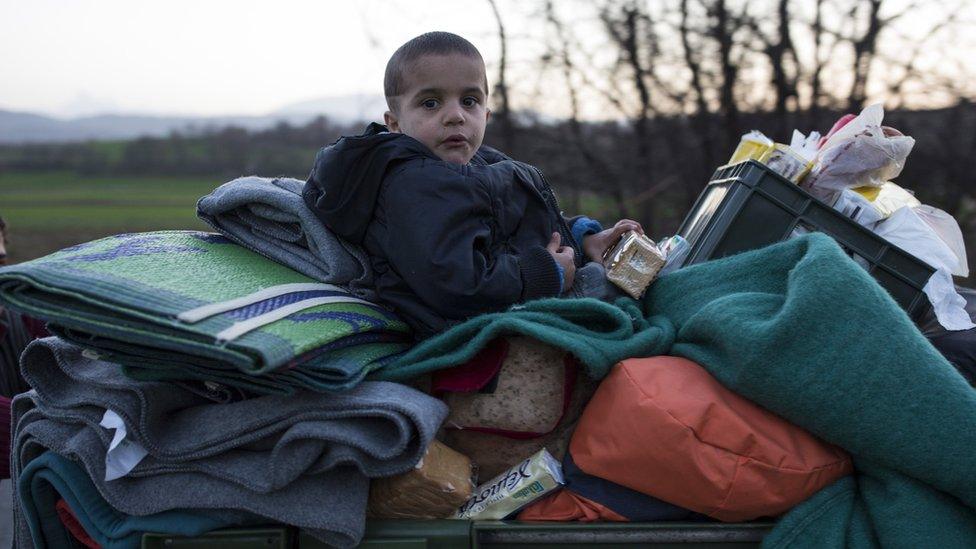
The EU has announced €10.1bn ($11bn; £7.8bn), external to address the crisis and help the most affected countries.
Greece has been awarded €148m in emergency assistance, including €80m to help build reception capacity to house migrants and refugees via the UN refugee agency (UNHCR) and €21m via the International Organisation for Migration (IOM).
Africa and Syria would receive €2.3bn and €1bn would be allocated to facilities for refugees in Turkey.
On 3 February the EU approved an extra €3bn to help Turkey improve conditions for refugees and curb the flow to the EU.
Turkey uses refugee crisis to up the ante
A note on terminology: The BBC uses the term migrant to refer to all people on the move who have yet to complete the legal process of claiming asylum. This group includes people fleeing war-torn countries such as Syria, who are likely to be granted refugee status, as well as people who are seeking jobs and better lives, who governments are likely to rule are economic migrants.